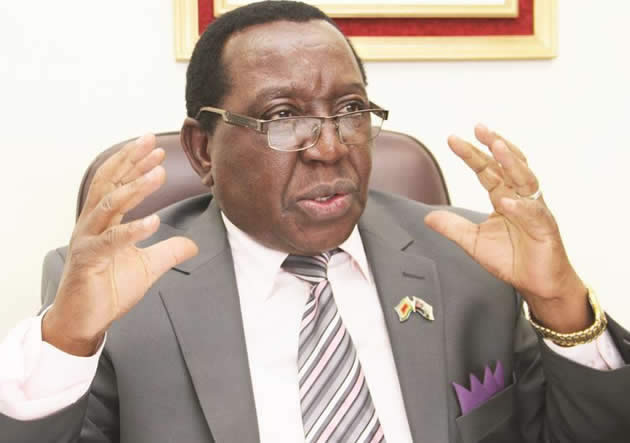Zim-Germany ties on the mend

Lloyd Gumbo Senior Reporter
Zimbabwe and Germany are set to resume economic and political relations with that country’s top diplomat expressing his country’s interest in normalising relations.
By virtue of being a member of the European Union, Berlin cut ties with Harare in 2002 after the latter embarked on a land redistribution exercise.
This was at the behest of Britain, after it reneged on its earlier commitment to compensate white commercial farmers for land distributed to the poor in Zimbabwe.
ALSO SEE
Regional director for Sub-Saharan Africa and the Sahel Ambassador Georg Schmidt met Finance and Economic Development Minister Patrick Chinamasa in Harare yesterday where he expressed his country’s desire to resume economic and political ties with Zimbabwe.
As a result, a Zimbabwean delegation of technocrats will soon visit Germany to deliberate on a $739 million debt.
Speaking to the media after a closed-door meeting, Minister Chinamasa said the visit by Ambassador Schmidt was an important initiative in improving political and economic relations between the two countries.
“As you may know, Germany is the largest creditor among the Paris Club creditors,” said Minister Chinamasa.
“We owe Germany $739 million which reflects naturally the level of economic engagement that existed before the sanctions hit us. The effort that we are now making is to restore that relationship. It is going to be a step-by-step process. Nothing is going to happen overnight. We will have dialogue so that we sort whatever needs to be sorted out in our relationship.
“We have also agreed that they are going to invite us. Initially, we will send technical people to visit the Ministry of Finance in Germany to talk about debt, to talk about our economic relationship and how we can move it forward.”
Minister Chinamasa said Zimbabwe was committed to the rule of law and would do everything to ensure the law is complied with.
Ambassador Schmidt is in the country to attend a two-day conference on the Constitution and its implementation organised by a German think-tank.
He said rule of law was a key factor in attracting foreign investment.
“It is important in political terms that people can feel that they are protected by the law. But it’s also important in economic terms because foreign investors, the first thing they look into before they engage is, if there is a problem, what is the dispute settlement mechanism? What are the terms and conditions that will be coming in?
“So the general framework and rule of law is one critical factor for people from the private sector to be actually involved in the Zimbabwean economy.
“It’s upon the initiative of the Zimbabwean Government to regulate and create conditions and the framework. Zimbabwe, I am confident, has a lot to offer (that) can attract foreign investment,” said Ambassador Schmidt.
He said as a member of the Paris Club they awaited feedback from the IMF’s Staff Monitored Programme on whether or not there had been progress in the coun- try.








Comments